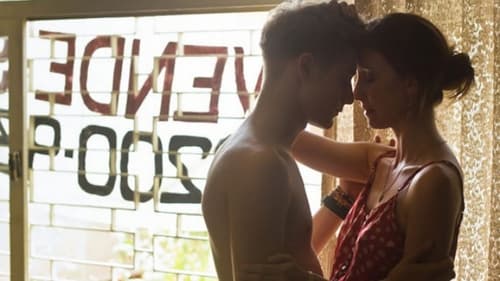Fabio Meira
Nacimiento : 1979-01-01, Goiânia, Goiás, Brasile

Producer
En el Brasil rural, en una región de clima árido y poca vegetación, vive Irene, una chica con una familia tradicional, que se lleva mejor con la criada que con las hermanas. Un día, Irene se entera que el padre tiene una segunda familia y otra hija de su misma edad, también llamada Irene. Sin que nadie lo sepa, se arriesga a conocer a su hermanastra, y conoce a una Irene muy diferente, con la que experimenta entonces una nueva posibilidad de ser. Irene repite la doble vida del padre, entrando en un juego de secretos y mentiras.

Writer
En el Brasil rural, en una región de clima árido y poca vegetación, vive Irene, una chica con una familia tradicional, que se lleva mejor con la criada que con las hermanas. Un día, Irene se entera que el padre tiene una segunda familia y otra hija de su misma edad, también llamada Irene. Sin que nadie lo sepa, se arriesga a conocer a su hermanastra, y conoce a una Irene muy diferente, con la que experimenta entonces una nueva posibilidad de ser. Irene repite la doble vida del padre, entrando en un juego de secretos y mentiras.

Director
En el Brasil rural, en una región de clima árido y poca vegetación, vive Irene, una chica con una familia tradicional, que se lleva mejor con la criada que con las hermanas. Un día, Irene se entera que el padre tiene una segunda familia y otra hija de su misma edad, también llamada Irene. Sin que nadie lo sepa, se arriesga a conocer a su hermanastra, y conoce a una Irene muy diferente, con la que experimenta entonces una nueva posibilidad de ser. Irene repite la doble vida del padre, entrando en un juego de secretos y mentiras.

Writer
The story of Helena, a recently graduated attorney who works as a public defender of children and adolescents in the courts of the city of Santos, Brazil, and her brother, the teenager Caio, who will commit a serious crime. De Menor participated in Films in Progress at last year's San Sebastian Festival.

Editor
The doorbell at the bridal shop rings.

Art Direction
The doorbell at the bridal shop rings.

Writer
The doorbell at the bridal shop rings.

Producer
The doorbell at the bridal shop rings.

Director
The doorbell at the bridal shop rings.

Director

Editor
Susana Barriga’s documentary, the illusion, begins with violence. A long shot reveals a man standing on a street corner, his features indiscernible in the night. He moves out of the camera’s line of vision, but the filmmaker, persistent, moves with him as the jostling of the camera marks her steps. As we learn moments later, the man in the distance is Susana’s father – and this is the clearest image of him we will have. Suddenly, an angry British man demands that Susana cease filming. Susana protests in heavily accented English, “He is my father!” Glimpses of a man’s torso are followed by blurred images as the camera spins rapidly over surfaces. The image cuts to black. A new male voice asks in carefully spaced out words if Susana would like him to call the police. When she doesn’t respond immediately, he speaks louder, as though volume would compensate for the language difference. She gives her name; she refuses the offer of an ambulance.

Cinematography
Susana Barriga’s documentary, the illusion, begins with violence. A long shot reveals a man standing on a street corner, his features indiscernible in the night. He moves out of the camera’s line of vision, but the filmmaker, persistent, moves with him as the jostling of the camera marks her steps. As we learn moments later, the man in the distance is Susana’s father – and this is the clearest image of him we will have. Suddenly, an angry British man demands that Susana cease filming. Susana protests in heavily accented English, “He is my father!” Glimpses of a man’s torso are followed by blurred images as the camera spins rapidly over surfaces. The image cuts to black. A new male voice asks in carefully spaced out words if Susana would like him to call the police. When she doesn’t respond immediately, he speaks louder, as though volume would compensate for the language difference. She gives her name; she refuses the offer of an ambulance.

Writer
Susana Barriga’s documentary, the illusion, begins with violence. A long shot reveals a man standing on a street corner, his features indiscernible in the night. He moves out of the camera’s line of vision, but the filmmaker, persistent, moves with him as the jostling of the camera marks her steps. As we learn moments later, the man in the distance is Susana’s father – and this is the clearest image of him we will have. Suddenly, an angry British man demands that Susana cease filming. Susana protests in heavily accented English, “He is my father!” Glimpses of a man’s torso are followed by blurred images as the camera spins rapidly over surfaces. The image cuts to black. A new male voice asks in carefully spaced out words if Susana would like him to call the police. When she doesn’t respond immediately, he speaks louder, as though volume would compensate for the language difference. She gives her name; she refuses the offer of an ambulance.

Director






